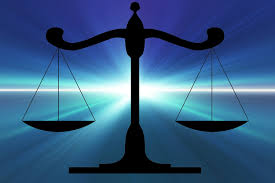Widgetized Section
Go to Admin » Appearance » Widgets » and move Gabfire Widget: Social into that MastheadOverlay zone
Social Justice
The views expressed are those of the author and do not necessarily reflect the views of ASPA as an organization.
By Andy Plumlee
December 15, 2017
“We all have an obligation no matter the risk, and regardless of reward, to stand up for our fellow men and women who are being oppressed with the understanding that human rights cannot be compromised.” – Colin Kaepernick

Social Justice is a hot button issue in America right now. One man’s protest is another man’s insult. How am I defining social justice? In the context of this article, I am defining social justice as ensuring fairness, equality and equity. Social justice is not about finding guilt or placing blame. At its core, social justice is about ensuring those in the minority are represented within a system which has and continues to fail them. There are many different lines of demarcation in the social justice conversation. Race, religion, gender, sexual orientation and socio-economic status to name a few. Navigating such sensitive topics is difficult and public administrators must be able to separate their personal beliefs from their public duties. Failing to do so may limit their effectiveness. It may also prove detrimental to the communities they serve.
I know this is easier said than done but it is possible. I believe public administrators achieve this separation most of the time. But how does someone separate their beliefs from their duties when doing so conflicts with his or her most closely held convictions? As outsiders, it can be equally difficult to understand why a public employee makes an unpopular decision wrapped in a blanket of free speech, morals and personally held beliefs.
Kim Davis, President Trump, Former President Obama and scores of other public servants have based public facing decisions on personally held beliefs. Those who agree with their actions cheer and applaud, those who don’t cry foul and demand the official be ousted from their position. Social justice is more about the collective will and desires of the community, not about what’s right or wrong. Far too often this distinction is lost in the heat of the battle.
What do I mean when I say social justice is not about deciding right and wrong? I must be crazy, slavery is wrong period! I contend based the institution and history of slavery is not a social justice topic but rather the impacts and consequences resulting from slavery. If you really feel like I have lost my mind now, just hold on, because I am going to go even deeper. First let’s look at the case of Kim Davis in Kentucky.
This case is a textbook social justice debate. There is a clear right and wrong, but it is not that she denied a homosexual couple a marriage license. Kim Davis was wrong to refuse to issue the license because she was bound by oath to discharge the duties of her office in accordance with local and state laws and she failed to do so. It was this failure, not religious persecution, that found her behind bars. There were many parts to the social justice debate in this case and this is where it gets tricky.
Was Davis’ religious freedoms infringed upon by asking her to sign off on a marriage not allowed in the eyes of her god? Is it not everyone’s religious freedom to pursue life free from the constraints of someone else’s religious beliefs? Should church doctrine governing the spiritual binding of souls in a religious marriage have any bearing on the property rights conveyed in a legal marriage? Is sexual orientation a choice? Does it matter if it is a choice or not? If it is in fact a choice, then is it a choice that should be governed by anyone other than the participating parties? Such questions speak to concerns of fairness, equality and equity; not about binary concepts such as right or wrong.
You can choose to identify the minority in need of protection as religion or LGBTQ, or you could argue neither one needs protection, but no where in this discussion does right or wrong arise. A similar concept is present in legal justice. What’s right isn’t always legal and what is wrong is not always illegal. In terms of social justice, public administrators must seek to move the conversation to topics of impact, consequences, fairness, equality and equity and away from concepts of right or wrong.
Social justice is a powerful tool for addressing disparity in criminal sentencing, distribution of wealth, access to quality health care and education. It is crucial to building a society where people from all walks of life can feel secure and represented by the system that governs their lives. Kaepernick is correct, we all have an obligation to stand up for our fellow men and women when they are oppressed. Social justice is the mechanism through which we will ensure everyone is treated fairly, equally and equitably.
Author: Andy Plumlee is a veteran with 14 years of Naval service. He held many leadership positions including Officer in-Charge of a Naval Landing Craft. He holds both a Master’s in business and public administration from Presidio Graduate School. He can be reached at [email protected] or connect with him on LinkedIn.


Douglas
December 15, 2017 at 2:02 pm
You lost all credibility opening up with Kaepernick…
Andy
December 19, 2017 at 2:59 pm
Thank you for your comment, may I ask is it the words of the quote or his position that cause me to lose credibility?